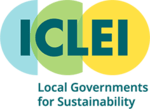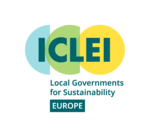Innovation for the future of our ecosystems: Insights from the 'Surfing the Innovation Stream' webinar

On 19 November 2024, ecosystem restoration was the focus of an inspiring webinar entitled "Surfing the Innovation Stream". Organised by the EcoDaLLi project and the UrbanByNature programme, the event provided a comprehensive overview of innovative approaches, current challenges and future perspectives in the restoration of aquatic and landscape ecosystems across Europe.
From EU missions to local projects: A multifaceted approach
The webinar began with an introduction to EU missions, in particular the Oceans and Waters Mission, which has set ambitious goals: restoring rivers and wetlands, reducing water pollution and promoting a sustainable blue economy. Geographical model regions such as the Danube and the Black Sea act as "lighthouses" where innovative solutions are tested and communities are actively involved.
The importance of innovation ecosystems emerged as a recurring theme. It was stressed that technological progress can only succeed if it is embedded in a supportive environment. Networks involving research institutions, local authorities, NGOs and businesses play a crucial role in developing and scaling up solutions. EU funding programmes such as Horizon Europe and LIFE provide critical financial resources to drive these initiatives forward.
Practical examples and challenges
Several presentations highlighted concrete projects already underway in the Danube - Black Sea region. Notable examples included the restoration of floodplains through natural flood cycles, which has revitalised ecosystems. Other projects focused on improving water quality through bio-filtration systems or tackling plastic pollution in rivers. A project to harmonise scientific methods across the Black Sea showed how the FAIR data principles facilitate cross-border cooperation.
Despite these achievements, challenges remain. Many initiatives face high initial investment costs, difficulties in attracting private investors and the need to bridge gaps between different stakeholders. In addition, geopolitical uncertainties and limited local capacity continue to hinder progress.
Key outcomes of the webinar
- Ecosystem restoration requires an integrated approach that combines technological, social and political dimensions. The key takeaways are summarised below:
- Technological solutions such as nature-based systems or data platforms need to be complemented by effective governance models and financial support. Cross-border cooperation is crucial, especially in complex ecosystems such as the Danube.
- Involving local communities not only increases acceptance, but also improves the effectiveness of interventions. Projects that rely on volunteer work and local involvement raise awareness and foster a sense of environmental responsibility.
- The ability to scale up successful projects remains a challenge. Clear evaluation criteria are needed to assess which innovations are scalable, as well as improved mechanisms for mobilising public and private funding.
- In the face of climate change and escalating environmental pressures, a systematic, long-term approach is essential. Flexible strategies that can adapt to unforeseen challenges are equally important.
The webinar vividly demonstrated that sustainable change is possible when all stakeholders - from local communities to European institutions - work together. With the courage to innovate, a clear vision and a shared commitment to protect the environment for future generations, the ambitious goals set can be achieved.
Missed the webinar? You can watch the presentations and access key materials here. Don't miss this opportunity to explore the innovative ideas that are shaping the future of our ecosystems!

Our partners












The UrbanByNature programme is funded by the Horizon 2020 Framework Programme of the European Union under Grant Agreements No. 730222 and No. 776604. It has received funding for an update by the Horizon Europe Programme under the Grant Agreement No 101003818. The sole responsibility for the content of this website lies within UrbanByNature and in no way reflects the views of the European Union.